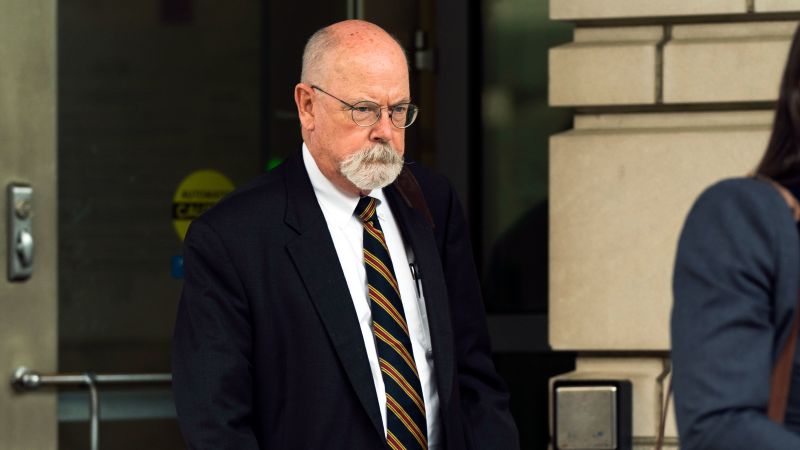In a significant legal development, Florida’s Attorney General Pam Bondi has recently requested federal prosecutors to initiate a grand jury investigation into allegations that the Obama administration manipulated intelligence related to Russian interference in the 2016 presidential election. This directive, coming during a time of heightened political tension, is reminiscent of events during President Donald Trump’s administration. Bill Barr, who served as Attorney General at that time, publicly claimed that governmental agencies had improperly spied on American citizens, subsequently appointing John Durham to lead an extensive four-year investigation. This inquiry criticized the FBI’s actions during its investigation into potential collusion between the Trump campaign and Russia but ultimately resulted in no substantive charges against key actors within the CIA or intelligence community.
Bondi’s call for an investigation appears to redirect scrutiny towards a period that has already been exhaustively analyzed for more than eight years. The attorney general’s actions are yet another example of the Trump administration’s trend of utilizing the Justice Department as a tool to pursue political adversaries. Legal analyst and former federal prosecutor Elie Honig noted that Durham had aimed to impose criminal charges but ultimately did not substantiate claims related to CIA involvement in concluding Russian interference. It seems that Bondi’s current investigation is simply a reiteration, or as Honig put it, “the fifth bite at the same apple,” questioning whether prosecutors will be any more successful this time.
The groundwork for Bondi’s investigation was laid by Tulsi Gabbard, the Director of National Intelligence, who has declassified documents she claims indicate a “seditious conspiracy.” Gabbard has accused former Obama officials of misconduct regarding the intelligence surrounding Russian interference. In a recent Fox Business appearance, she expressed bafflement at previous investigators, implying that significant omissions compromise the truth surrounding the events leading to the 2016 election. Gabbard insinuated that a “cover-up” was at play regarding the investigation of the alleged conspiracy among government officials.
While Durham focused primarily on scrutinizing the FBI and its missteps highlighted by the Justice Department’s own inspector general, Gabbard’s allegations cast a wider net on the CIA and the intelligence community. An analysis revealed that while Durham affirmed the intelligence community’s position regarding Russian election interference, Gabbard insists that the Obama administration orchestrated a false narrative in an effort to deceive the public. By pointing to intelligence assessments which determined that cyberattacks did not alter election results, she misconstrues the conclusion regarding Russian interference.
The paradox of Gabbard’s assertions lies in her reference to intelligence community reports that stress no votes were altered during the election, yet she leverages those very reports to claim that the intelligence was fabricated. Critics of Gabbard and Trump contend that they manipulate these findings to deflect attention from other scandals, such as those surrounding Jeffrey Epstein. Democrat Senator Mark Warner emphasized that extensive investigations reaffirmed the consensus that Russia sought to bolster Trump’s candidacy during the 2016 election.
Durham’s scrutinizing investigation, which ultimately did not uncover a substantial conspiracy among key figures in the Trump-Russia dialogue, critiqued the FBI for its premature actions without evidence of collusion. Meanwhile, new efforts spearheaded by Bondi raise questions about the scope of the inquiry, as it remains unclear which specific allegations will be explored and under whose leadership the investigation will unfold.
Additional documents released by officials affiliated with Trump have subsequently stoked controversy. CIA Director John Ratcliffe criticized earlier conclusions drawn concerning Putin’s intentions regarding Trump. Despite these revelations, the continued push for further investigations into prior inquiries—induced by both Bondi and Gabbard—illustrates a lasting partisan conflict centered predominantly on the allegations of Russian interference, overshadowing evolving narratives in American political discourse.
The complexities surrounding these investigations emphasize the continuing tensions in U.S. politics and the challenges of discerning fact amid the clamor of contradictory interpretations of such pivotal events. As the ongoing legal inquiries unfold, the American public will be closely watching the outcomes of these high-stakes investigations that resonate beyond mere political rivalry, touching upon the integrity of democratic processes themselves.











